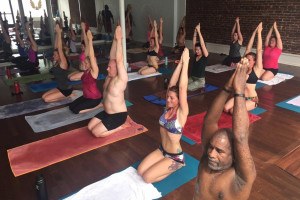Ask Dr. Monti: Is “Dry Eye” a Sign That You’re Dehydrated?
Question: Is “dry eye” a sign that you’re dehydrated?
Answer: Dry eye syndrome is a common problem in adults. Dehydration can cause your eyes to be dry, and winter is a time when dry eyes tend to be at their worst. Our eyes need continuous lubrication, which is achieved by specialized glands around the eyes which make tears. Our eyelids act like windshield wipers spreading the tears evenly across the surface of the eye. When there are problems with the tear glands or our eyelids, our eyes can get dry. This can cause a dry or gritty sensation, pain, redness, sensitivity to light, blurred vision and tearing.
Environmental factors like wind, heat, and dry air cause our tears to evaporate too quickly. Likewise, contact lenses absorb our tears like a sponge. Hormones affect our tear production, and with aging, we produce fewer tears. Some medications like antihistamines may decrease tear production.
Rosacea and autoimmune diseases like rheumatoid arthritis can injure our tear glands, so they don’t produce tears well. If we can’t close our eyes completely because of an injury or neurologic problem, our eyelids aren’t able to spread the tears and the exposed surface gets dry.
We normally blink every 12 seconds on average. We blink less whenever we concentrate for a long time on a computer, a book or the road while driving. Our eyes get dry from this exposure, too. To offer you the very best advice on dry eyes, I consulted leading Philadelphia ophthalmologist and cosmetic eye surgeon, Nancy Swartz, MD. She relayed that there are several things you can do to keep your eyes better lubricated:
1. The more moisture in the air, the less dry your eyes will be. So use a humidifier or put a pan of water near your heating vent. The water will evaporate into the air.
2. Moisten your eyes with artificial tears, gels or lubricating ointments. These are the most common treatment for dry eyes, and they are safe and easy.
3. Specialized goggles, like TranquilEyes, act as a moisture chamber to keep your eyes moist. These can be worn while you sleep at night or for short periods during the daytime to get relief from discomfort.
4. When these simple solutions aren’t enough, there are some medical interventions that can be discussed with your doctor. For example, there are eye drops that reduce inflammation, the most common cause of tear gland dysfunction. Also, there is a tear drainage system in our eyelids that works a little like the drain of a sink. Just like putting a stopper in a drain, your eye doctor can plug your tear drainage system, so the tears stay on your eyes longer.
5. If you struggle with dry eyes, discuss your symptoms with an eye specialist who can help you feel better and can offer additional treatments that directly address the cause of your dry eyes.
ASK DR. MONTI: E-mail Dr. Monti your question here, and he could answer it an upcoming blog post! Dr. Monti is Director of the Myrna Brind Center of Integrative Medicine at Thomas Jefferson University Hospital and the author of “The Great Life Makeover”. Read more about him here.
Join Dr. Monti’s Facebook Fan Page – Daniel A. Monti, MD – and follow him on Twitter @DanielMontiMD.



